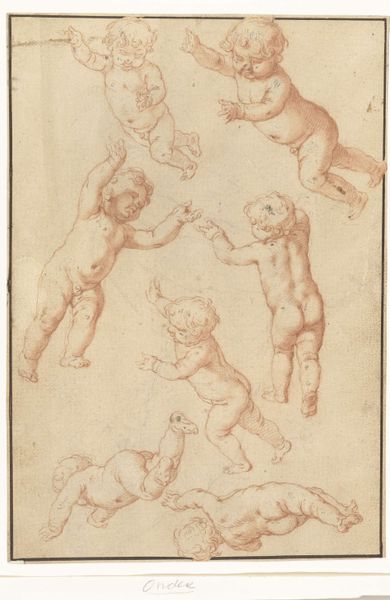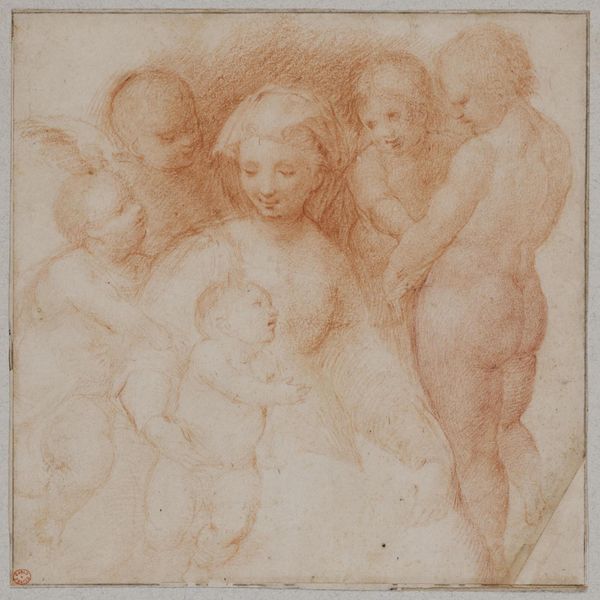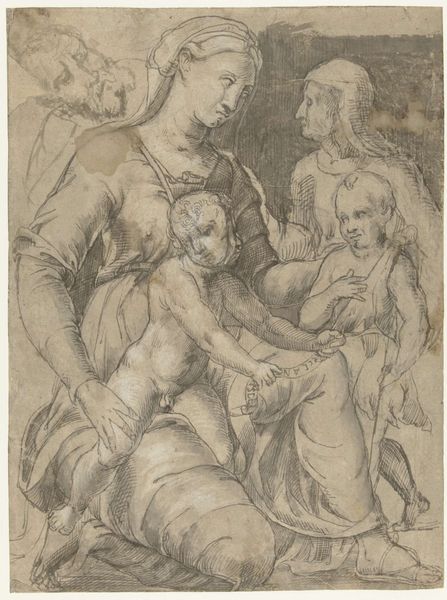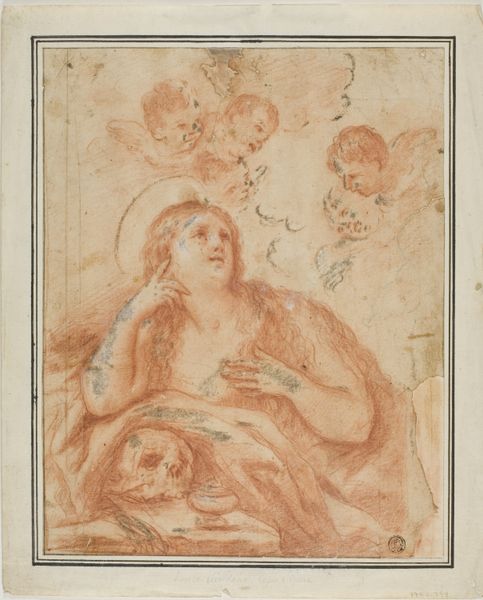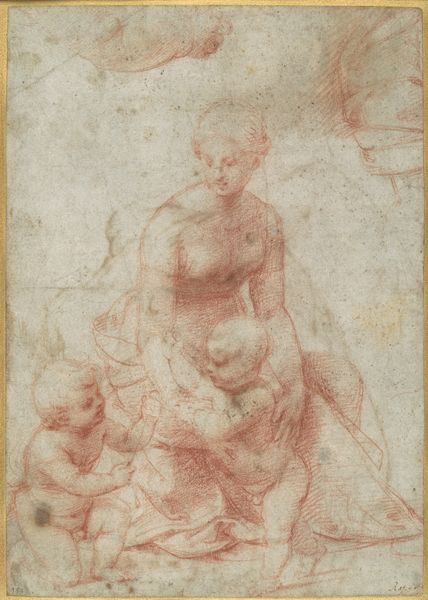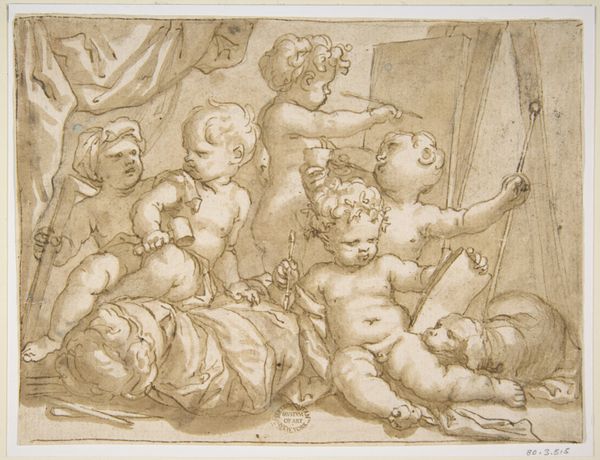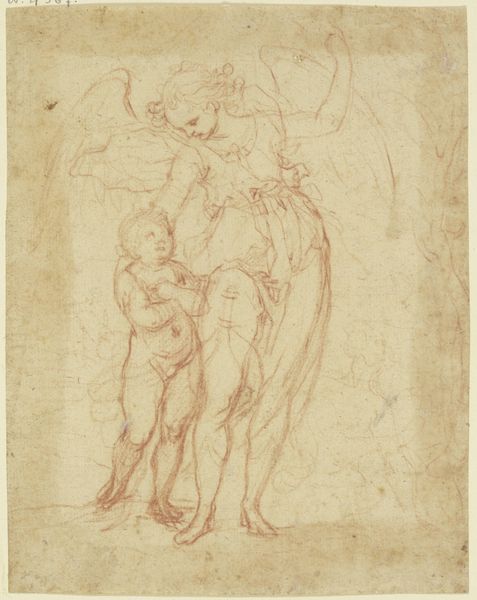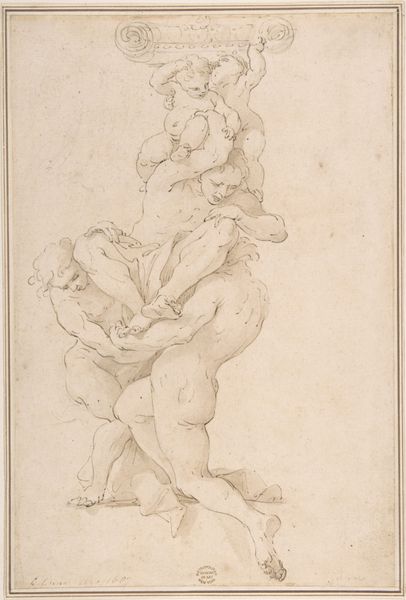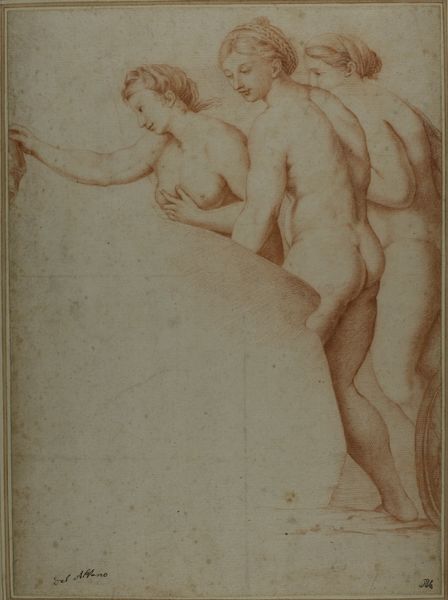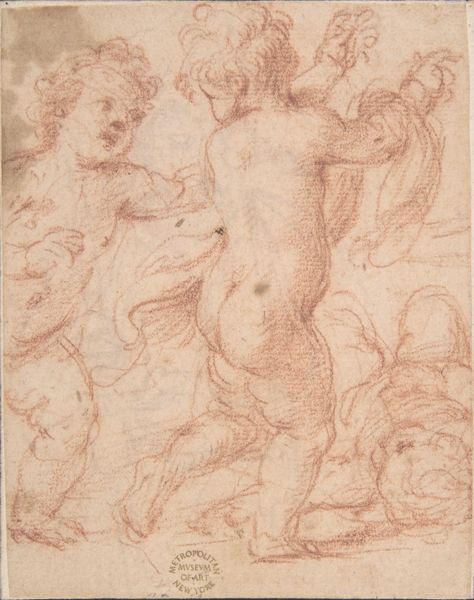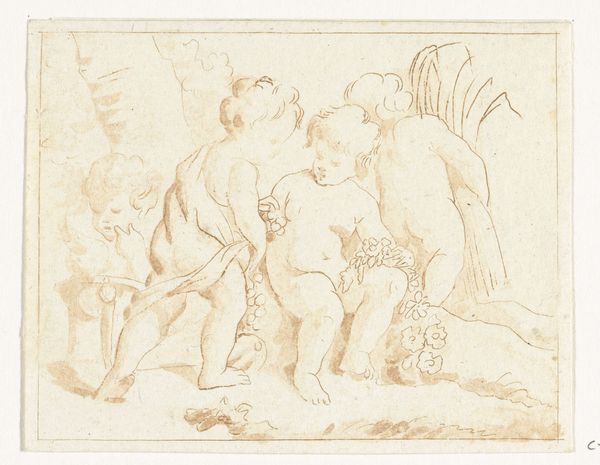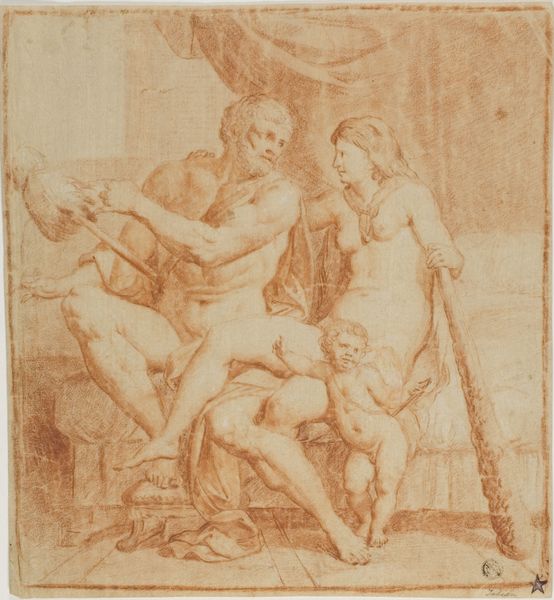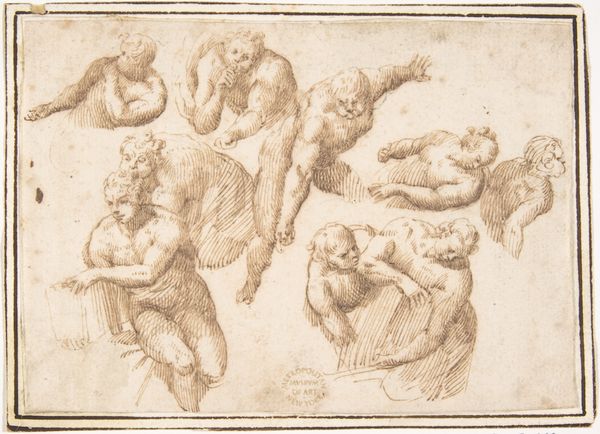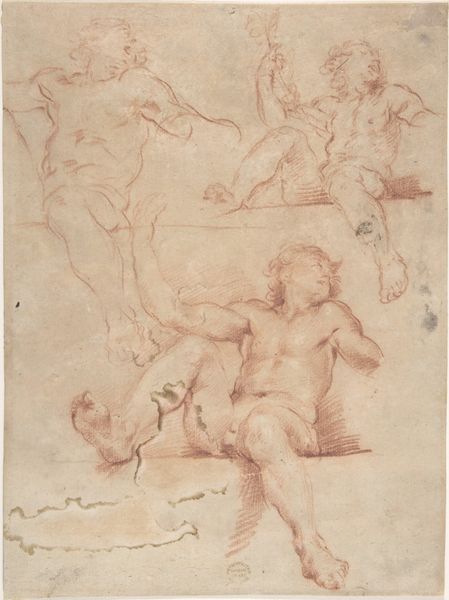
drawing, print
#
drawing
#
toned paper
#
baroque
# print
#
charcoal drawing
#
11_renaissance
#
group-portraits
#
history-painting
#
italian-renaissance
Dimensions: 9 13/16 x 7in. (24.9 x 17.8cm)
Copyright: Public Domain
Editor: We’re looking at “Winged Putti with Open Music Books” by Lorenzo Pasinelli, dating back to somewhere between 1629 and 1700. It’s a drawing, likely charcoal, on toned paper. There's a kind of… playful, yet formal feel to it. What stands out to you in this work? Curator: For me, the key to understanding this work lies in understanding the *making* of it. Look closely at the toned paper – that's not just a stylistic choice. It was a common practice to economize the use of expensive white paper. How do the materials shape our understanding of baroque artistry? Editor: That's interesting, I never thought about that! It does give the work a unique feel, almost like a fresco. But does it change the religious imagery? Curator: The "religious imagery" as you call it isn't solely about conveying spiritual meaning. Consider the role of patronage and workshop production. The abundance of cherubic figures might be less about divine reverence and more about satisfying a market for decorative, classically-inspired imagery, produced via efficient, division-of-labor systems in Pasinelli’s studio. What impact do you think these art-market forces may have had on how Pasinelli worked, day to day? Editor: So, the spiritual symbolism becomes less important than the means and the motivations of producing it? Curator: Exactly! The artist had to balance faith with economic realities. Also note the paper itself – a consumable good – acting as a critical constraint to Pasinelli. It suggests we shift our focus away from pure aesthetics toward the more material, tangible aspect of creation. Editor: This makes me rethink how I see works from this period! I tend to focus on meaning first. I appreciate learning about the constraints the artist may have faced. Curator: It highlights how understanding the “stuff” of art offers valuable insight beyond symbolism and style. There is so much to be learned.
Comments
No comments
Be the first to comment and join the conversation on the ultimate creative platform.
